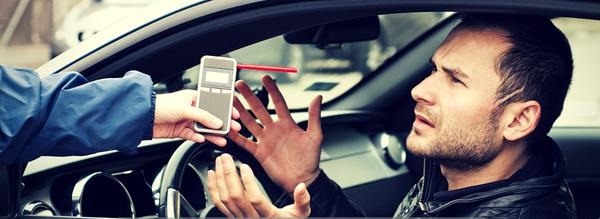With the sheer volume of drivers on the roads, safety is always a concern. Throw alcohol in the mix, and the need for DUI checkpoints and sobriety tests are beyond important. One of the most commonly used devices for checking the alcohol content of a persons blood is perhaps the most flawed, the breathalyzer. So much so that some states don’t allow data from handheld machines to be used in court and the courts of South Dakota don’t allow them at all, relying on blood testing for the presence of alcohol instead.
So why are these machines flawed? Here are 5 potential reasons why a breathalyzer might give a false result.
-
Breathalyzers don’t just measure Ethyl Alcohol (ethanol)
A breathalyzer isn’t measure the alcohol content in your blood, as some would believe, but instead is detecting the ethanol levels in your breath. Ethanol, which is found in alcoholic beverages, aren’t the only thing a breathalyzer picks up. Anything with a similar molecular structure, such as the methyl group, can cause a false reading. So diabetics, due to high acetone readings, and even non drinkers can show a false positive when given a breathalyzer test.
-
Fluctuations in Temperature can affect results
A breathalyzer is a very sensitive device that is subject to ambient temperatures around it. Not being properly calibrated to the environment it’s used in can result in false results. The temperature of the subject taking the test can also cause the results to vary, to as much as an 8% for every point above normal body temperature. Meaning if you have a low grade fever, you test positive for being over the legal limit, even if you weren’t drinking.
-
Subject to Interference
Like most digital devices, there are various things that can interfere with a breathalyzer reading. Police radios and cell phones can provide a digital disruption, allowing a fluctuation in numbers. Other physical factors such as blood, or tobacco smoke, dirt or moisture can all have an effect on the readout.
-
Tested Subjects Physiology can Affect Results
As no two people are alike, it’s almost impossible to calibrate a breathalyzer for each individual person. Differences in body weight, physical shape, and overall health conditions can all change the readout of a breathalyzer. Studies have also shown that physical activity and hyperventilating can decrease the results shown in a breathalyzer.
-
Subject to Human Error
Perhaps one of the biggest issues with a breathalyzer is that is very subject to human error. If an administrator fails to calibrate or the testing officer performs the test improperly, it can all lead to inaccurate results.
While a breathalyzer can be very prone to being inaccurate, you’re still required to take the test due to the concept of implied consent. Of which the basic idea is that you’re using public roads so you’re implying your consent to a breathalyzer or other BAC test. You can be subject to just as many penalties for refusing the test as you can for showing a false positive on the test. The best option in this instance is don’t drink and drive. Use a designated driver and you won’t have to worry about whether or not the breathalyzer is accurate or not.
+Andrew is a leading DUI and criminal defense attorney in Maryland and Washington, DC. He writes about Maryland law on his blog and has appeared on national television to offer his legal opinion on high-profile criminal cases.
